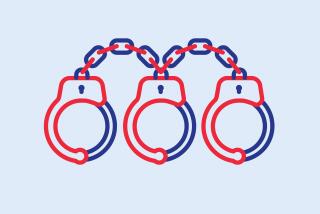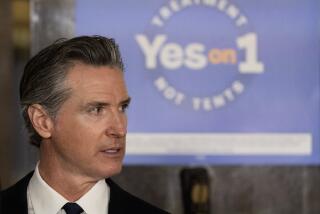Doctor-Assisted Death Measure
- Share via
In response to “Physician-Assisted Death: Is This Measure the Answer?” (editorial, Oct. 14).
Your criticism about drafting Prop. 161 only applies if the measure is looked at in a vacuum. Where are the statutory safeguards for the present practices of ending lives by turning off respirators or withdrawal of food and hydration? There is no abuse of the present system, and there is no indication of any potential for abuse if Prop. 161 passes.
Where is the requirement under present law for psychological evaluation before ending a life? There is no such statute.
You are wrong about informed consent. The statute pertains to a “medical procedure,” and no such procedure may be done without informed consent. It is the law declared by our Supreme Court, and applies in all medical procedures.
Your concern about the possibility of “simple error as well as outright abuse” sounds rational, but in denying relief of suffering for those who are competent, terminally ill and asking for compassionate assistance, your view is heartless. Nothing prohibits witnesses to be present.
Prop. 161 would legalize that which has been occurring for many years. Physicians respond to the compassionate need for help in dying from those who suffer. But it is now done secretively, without family support, without witnesses. Prop. 161 would change that.
The real issue is a moral one--is it immoral to deny to competent, terminally ill people the advances of our technology that will relieve suffering and provide for death, which can be painless, humane and dignified? In my view it is.
MICHAEL H. WHITE, President
Californians Against Human Suffering
Los Angeles


